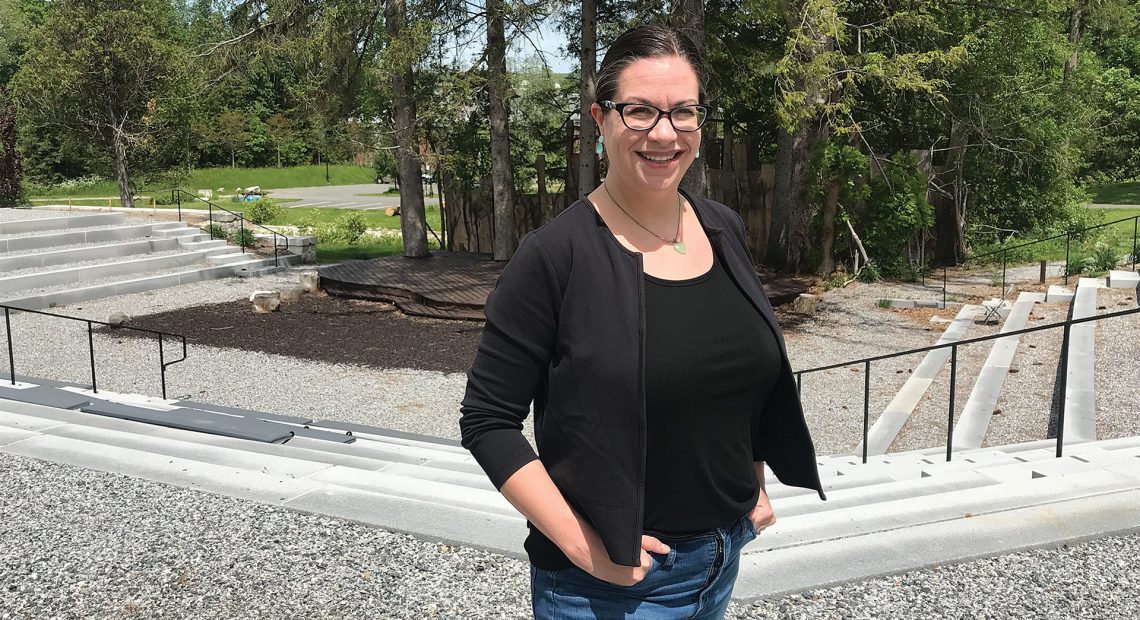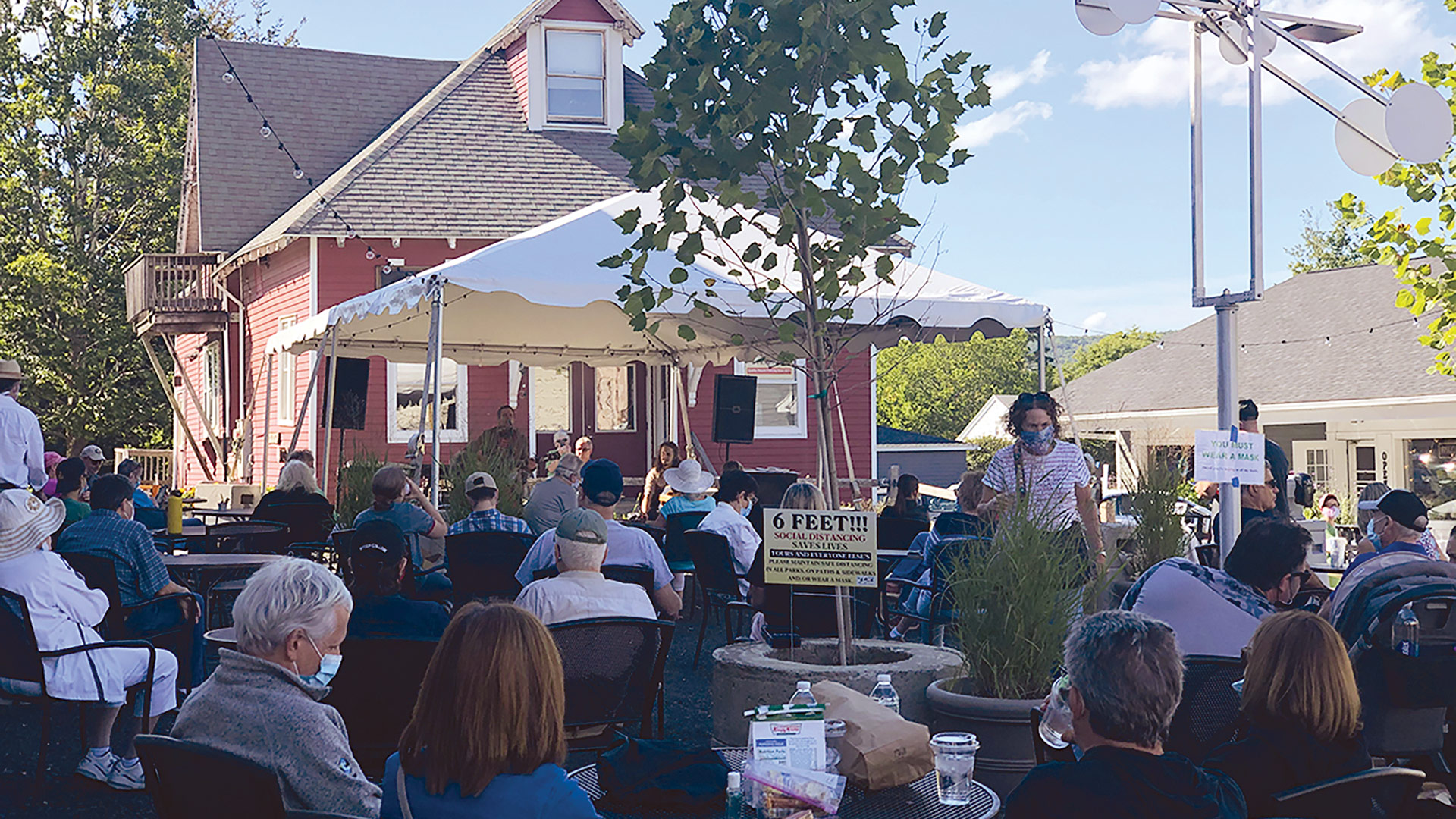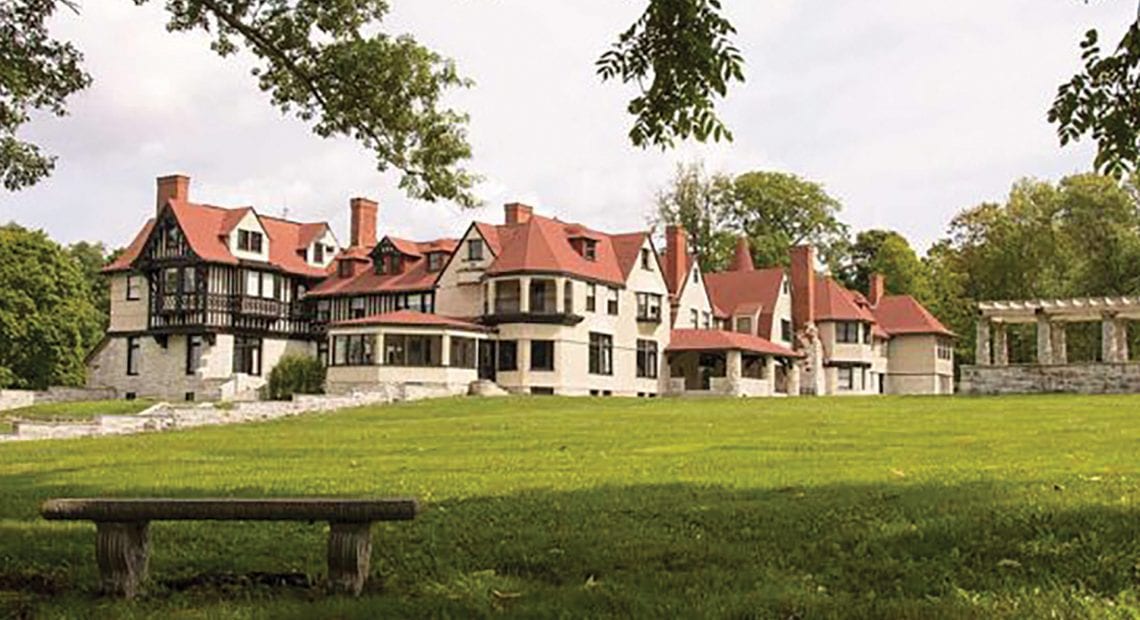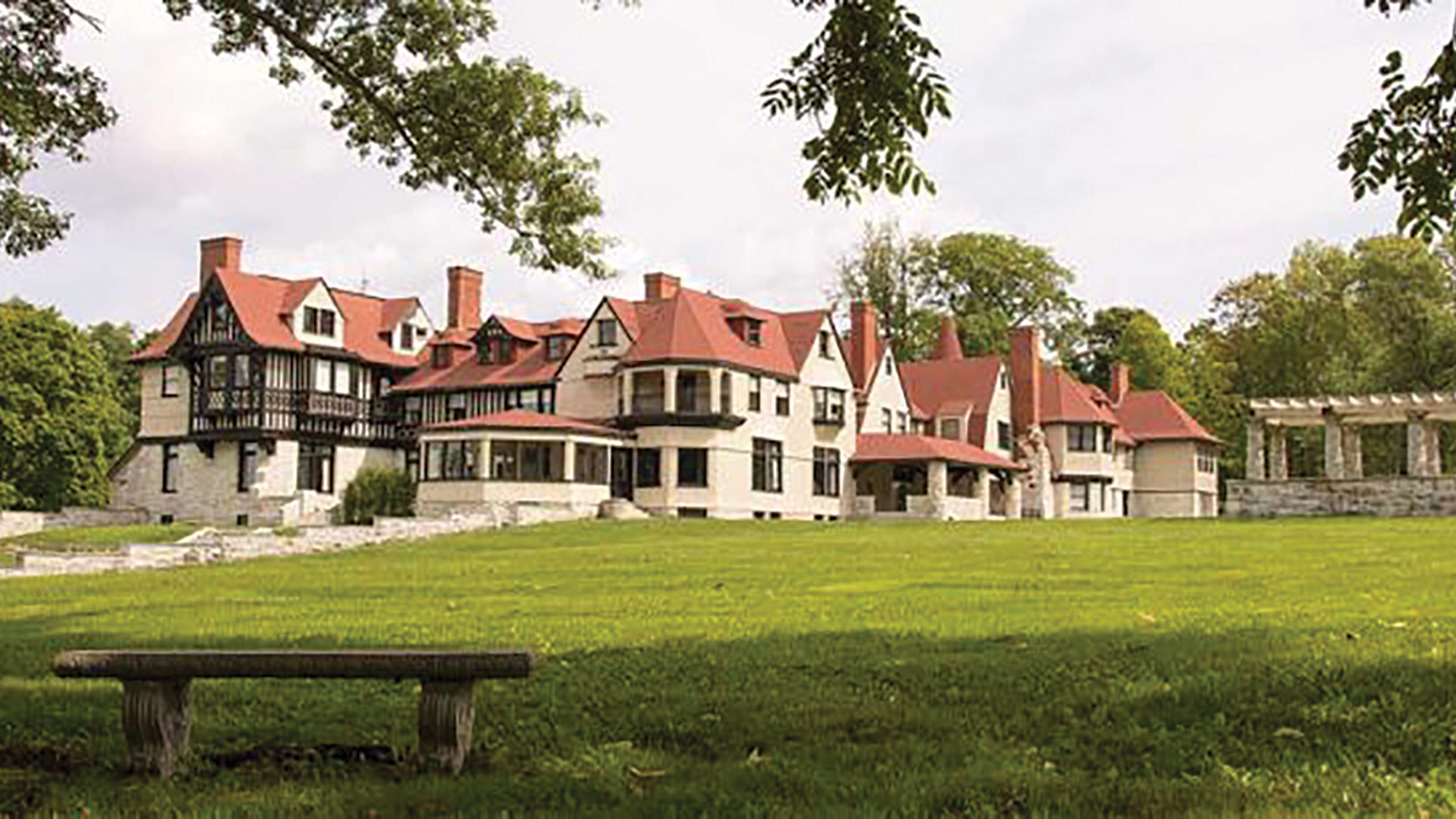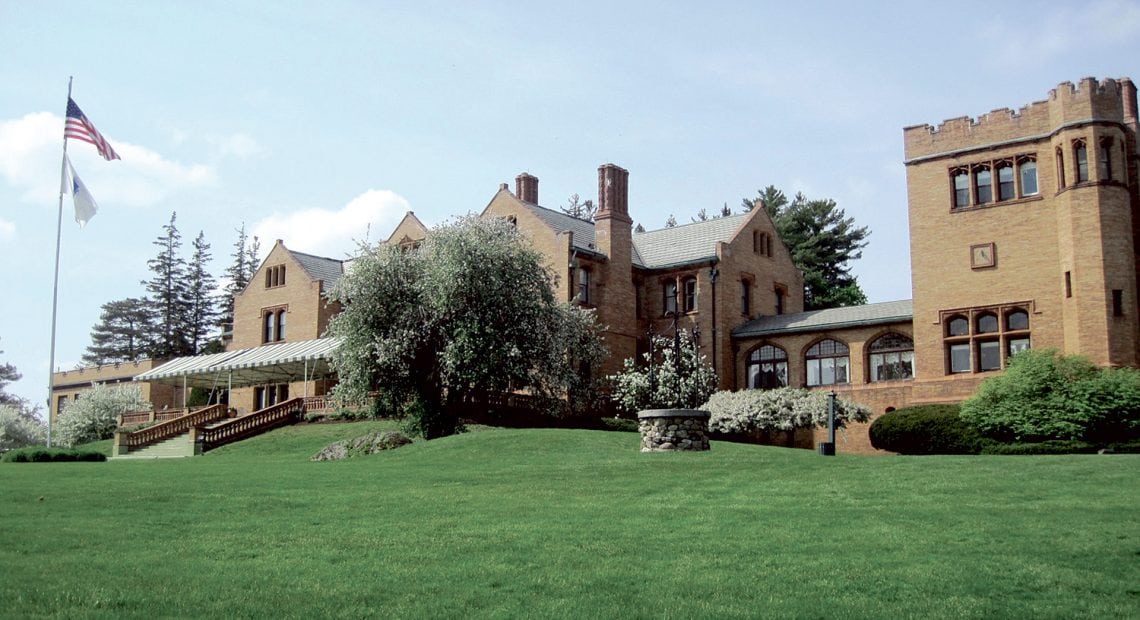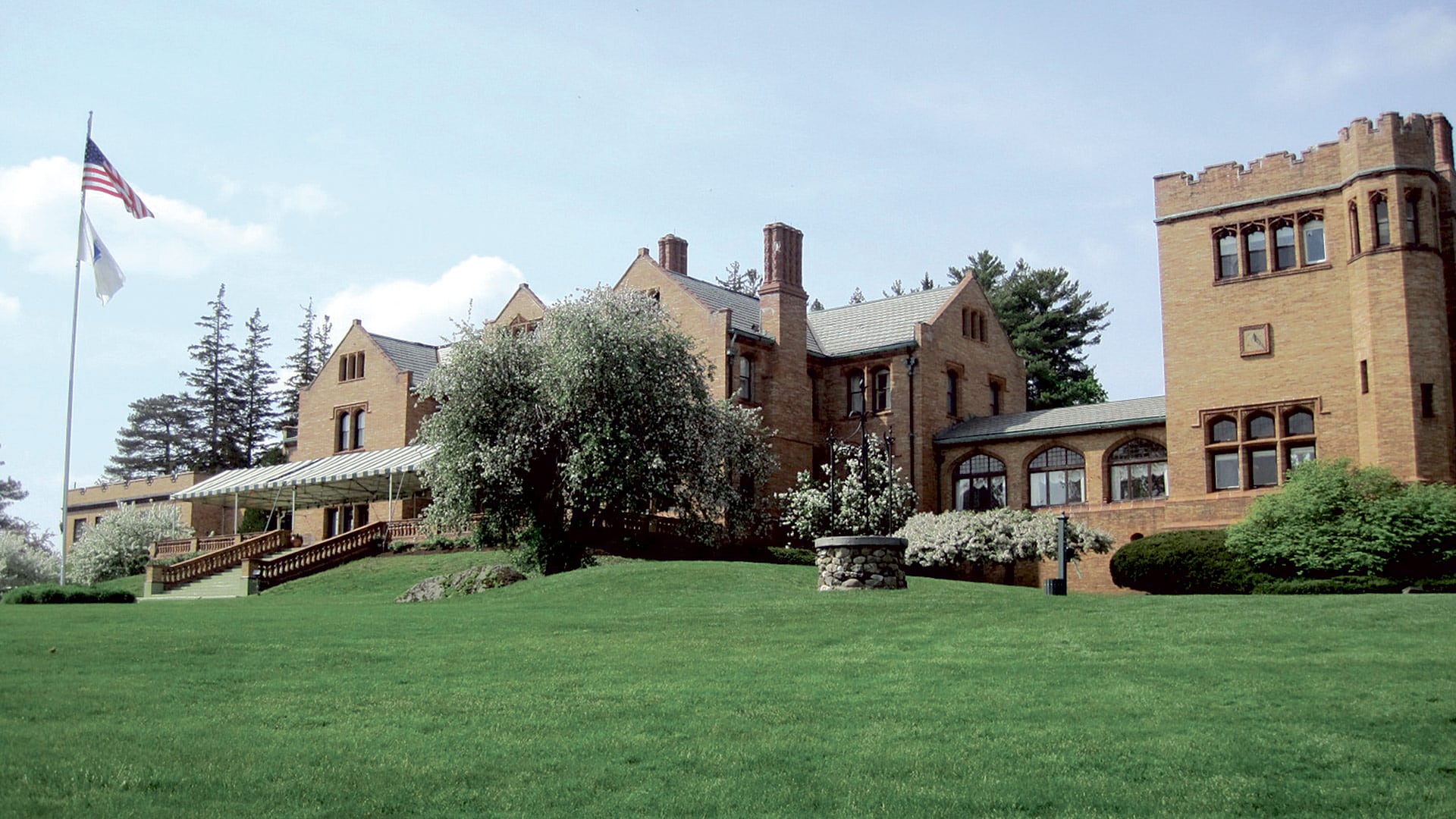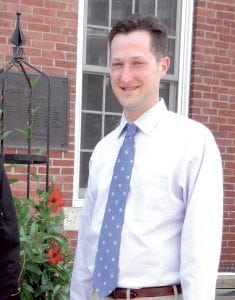Community Spotlight
By Mark Morris

Jaclyn Stevenson says Shakespeare & Company has extended its season into the shoulder months surrounding summer.
Jennifer Nacht describes the beginning of the summer season in Lenox as a light switch that clicks on to a time of “happy mayhem.”
Unofficially, the season begins after Memorial Day weekend, but Nacht, executive director of the Lenox Chamber of Commerce, noted that the weekends leading up to the holiday were plenty busy, as well. In fact, as early as January she first began to see a vibrant summer on the horizon for Lenox.
Back then, Nacht had begun planning the Lenox Art Walk event scheduled for this month. Her attempt to reserve hotel rooms for artists who planned to travel to the event was more difficult than anticipated.
“I was able to find only three rooms after calling several different hotels back in January,” Nacht said. “They were all so apologetic and said that because of weddings and other events, every place was booked full.”
This difficulty with finding rooms is just one indication of what promises to be a sizzling summer for Lenox, which, because of its tourism-based economy, faced innumerable challenges during the past two summers of COVID, and is poised for a breakout year.
Indeed, ‘healthy’ and ‘robust’ are terms that Marybeth Mitts, chair of the Lenox Select Board, uses to describe tourism in her community as high season, the three months of summer, commence.
“We’re excited to welcome the first full season of Tanglewood since the summer of 2019,” Mitts said, adding that, with a full summer of Boston Symphony Orchestra performances as well as a Popular Artists series, Tanglewood’s economic impact on Lenox and the Berkshires is considerable.
As one small snapshot, Nacht pointed out that James Taylor’s annual shows on July 3 and 4 will bring more than 36,000 people to town over just those two days.
“We’re excited to welcome the first full season of Tanglewood since the summer of 2019.”
Shakespeare and Company is another Lenox-based arts institution projecting not just a solid summer, but a solid year.
Indeed the theater company has extended its season into the shoulder months surrounding summer. Jaclyn Stevenson, director of marketing and communications, said the longer season is experimental, and will incorporate performances both indoors and outdoors.
Last year when COVID numbers stubbornly stayed high enough to threaten Shakespeare and Company’s ability to stage indoor plays, plans for an outdoor theatre that was a “someday” project, moved on to the fast track.
“The Spruce Theatre was constructed in 90 days in the summer of 2021,” Stevenson said. Modeled after the amphitheaters of ancient Greece, the stage rests in front of several tall spruce trees that are incorporated into the design.
“When the idea for it was presented in the context of COVID, it was much easier for everyone to understand the vision Artistic Director Allyn Burrows had for the theater,” added Stevenson.
While the company already had its outdoor Roman Garden Theatre that seats 280, the Spruce Theatre is a 500-seat facility with room to stage larger productions. In fact, the opening play for the Spruce Theatre was a production of King Lear featuring actor Christopher Lloyd in the title role.
“Having Christopher Lloyd here to christen the stage was a real coup,” Stevenson remembered. “It was the kind of fanfare we would not have been able to create otherwise in a COVID world.”
For this, the latest installment of its Ciommunity Spotlight series, BusinessWest looks at how Lenox is well-positioned to further rebound from COVID and take full advantage of what is expected to be a big year for the tourism sector — and communities that rely on such businesses to fuel their economy.
Art and Soul
The Art Walk is a good example of an event that was created at the height of the pandemic after the town was forced to cancel its annual Apple Squeeze event. As an alternative to the town-wide festival, Nacht and others developed the Art Walk and scheduled it for the late-September weekend when Apple Squeeze would have taken place.
The first Art Walk consisted of 40 artists set up in different areas of town known as “artist villages.” These villages were arranged to accommodate only small groups of people with an emphasis on foot-traffic flow to keep everyone moving through the exhibits.
The event received great feedback and has quickly become a tradition in Lenox. Now in its third year, Art Walk features spring and fall editions. Meanwhile, the Apple Squeeze has returned, and will take place on Sept. 24.

Jennifer Nacht says the summer is looking very promising for Lenox and its many tourism-related businesses.
“It’s very validating to see these events that we put together on the fly are now becoming established,” said Nacht, noting that Lenox Loves Music is another event created during the pandemic that has had staying power.
In Lenox, music and entertainment are an important part of the town’s identity. When Tanglewood, Shakespeare and Company and the other entertainment venues shut down at the height of COVID, the chamber began working with the Berkshire Music School on a series of Sunday afternoon concerts, and Lenox Loves Music was born.
“The new events really help the merchants,” Nacht said. “Our real goal is to hold events that bring people to Lenox who will eat in our restaurants and explore our shops.”
Like the Art Walk, the popularity of Lenox Loves Music has made it a keeper, with concerts every Friday in June and September.
“We run all these events in the shoulder months of May and June then September and October,” Nacht said. “Once our high season hits, beginning the weekend of July 4, we’re packed with visitors so we don’t need to entice tourists because they are already here.”
Shakespeare and Company is another organization that has extended its season to the shoulder months. In years past, the company would stage three plays by the Bard and three contemporary works. With the expanded season, it is staging two Shakespeare plays along with five or six modern plays.
“The mission of our company is based on the work of Shakespeare,” Stevenson said. “We choose our plays thoughtfully to reflect the spirit of the Bard and to show people new things.”
In addition to staging plays, the company also has a robust actor-training program and a nationally recognized theatre-in-education program.
Stevenson noted that a high-school-age theater group had recently performed Romeo and Juliet on the Spruce Theatre stage.
“The new events really help the merchants. Our real goal is to hold events that bring people to Lenox who will eat in our restaurants and explore our shops.”
“It was so cool to see students on the same stage where actors from all over the world will be performing Much Ado About Nothing in July,” Stevenson said. “You could see the joy of them being in that space.”
Setting the Stage
To accommodate all the tourists visiting these attractions, and locals as well, Lenox has a number of projects in the works to refurbish some of its municipal buildings while plans are in the works to build several new structures for town departments.
Beginning with Town Hall, Mitts said improvements are underway to replace the carpet and curtains in the auditorium as well as install a new roof and gold leaf on the Town Hall cupola.
“The town has capital plans within the next five years to begin construction on a new wastewater treatment plant, and a new public safety structure to include the Lenox police and fire departments,” Mitts said.
In addition to roof and chimney repairs to the library, Mitts said a key project involves updating the HVAC system.
“We’re installing a new interstitial system to manage ventilation in the building,” Mitts said. “This is to ensure proper storage of the library’s collections including rare books and ephemera of the region.”
Meanwhile, a different kind of refurbishing project is taking place at Mass Audubon Society’s Pleasant Valley Wildlife Sanctuary, a popular destination for hikers at all levels. Last July a wind and rainstorm felled thousands of trees and severely damaged a boardwalk at Pike’s Pond. With $200, 000 of American Rescue Plan Act (ARPA) funds from the state and private donations, cleanup and renovations are in progress.
“Many of the trails and structures have been restored, however, there is on-going work to bring the facility back up to the full capacity it enjoyed in June 2021,” Mitts said.
As for the chamber of commerce, Nacht said that while the pandemic really challenged the agency in many different ways, it also presented an opportunity for the chamber to show what it could do to support efforts in town.
“People are now confident in the chamber and look to us for help with their events,” Nacht said offering the example of a proverbial ‘good problem to have’ at a recent farmers’ market.
“The farmers’ market brought so many people to town there weren’t enough lunch places for people,” Nacht said. The chamber arranged for a food truck run by someone who had worked in Lenox restaurants for 20 years. “He was excited to be back in Lenox and tells people he’s living his dream with his food truck.”
“It’s nice to feel that kind of energy coming back to Lenox,” she went on, adding that energy levels are expected to soar even higher during what is shaping up to be a very memorable summer.



